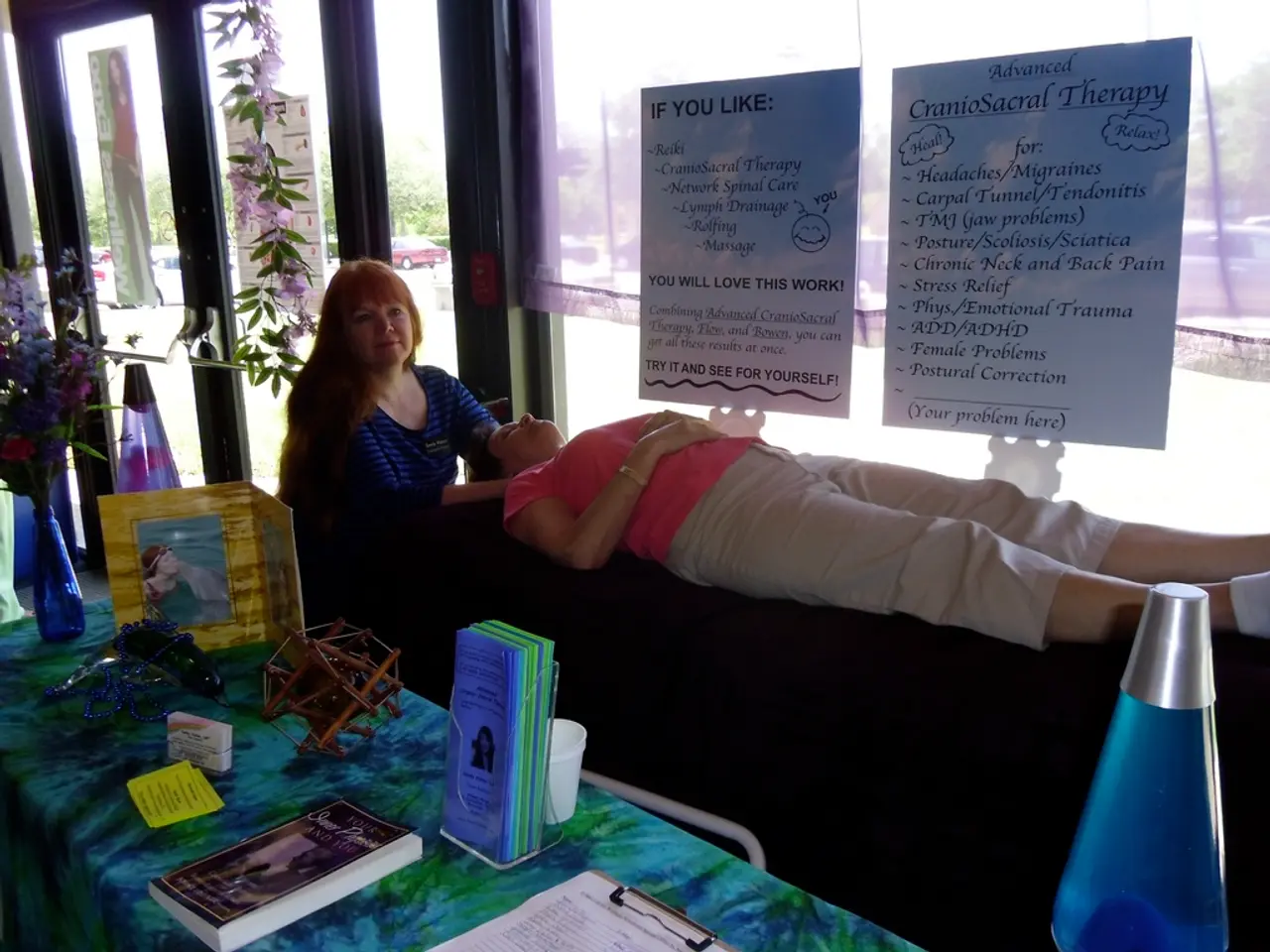Affirmations to bolster self-assurance against Psoriasis
Current research suggests that affirmations and self-compassion are effective tools for enhancing mental health and self-confidence in individuals living with psoriasis. These strategies, when used consistently, can help shift the focus away from self-criticism and foster a kinder internal dialogue.
Affirmations, positive statements designed to boost confidence and improve self-image, are particularly beneficial. By repeatedly focusing on health and balance rather than illness and imbalance, affirmations can support improved self-confidence and a more positive mental state. This effect is reinforced with regular practice.
Self-compassion, on the other hand, involves treating oneself with kindness rather than engaging in harsh self-judgment. This approach is crucial for those experiencing the emotional distress associated with chronic conditions such as psoriasis. Self-compassion practices help reduce feelings of shame, increase resilience, and promote emotional healing.
Combining affirmations with gratitude journaling and self-compassion can create a powerful mindset shift, moving one away from self-criticism towards a more compassionate and accepting stance. This change can help rebuild confidence eroded by the challenges of living with psoriasis.
Social support, including counseling, support groups, or peer networks, plays a complementary role in this process. By fostering a sense of belonging and emotional safety, social support enhances self-esteem and mental well-being when coping with psoriasis.
While the current evidence is largely experiential and clinical-guidance oriented, it aligns with research in psychology indicating that self-compassion and affirmations reduce psychological distress and improve quality of life in chronic illnesses. However, more large-scale, controlled studies specifically targeting psoriasis populations are needed to quantify these effects rigorously.
In summary, the use of positive affirmations and self-compassion is a promising, accessible strategy for improving mental health and self-confidence for people living with psoriasis. These strategies are most effective when integrated with social and psychological support.
Individuals can create affirmations that feel specific to their personal struggles or that feel positive and empowering. Learning from others who have overcome similar difficulties can help one feel less isolated and provide tips for boosting mental health and well-being.
Finding effective treatment options, such as psychological therapy or counseling, stress management or relaxation therapy, cognitive behavioral therapy, and support groups, can help manage symptoms and reduce the severity of flare-ups that can cause anxiety or depressive symptoms.
Talking about psoriasis with friends, family, or in a romantic relationship can help others better understand the situation and offer support. Speaking kindly to oneself (self-compassion) may also help support mental well-being.
Working with a team of healthcare professionals, including a dermatologist or a mental health professional, can help individuals better cope with the mental health effects of psoriasis.
Affirmations that people with psoriasis may find helpful include: "My body is strong and capable", "I am not alone in this", "I choose to feel good about myself", "I release the thoughts and habits which no longer serve me", "I am grateful for all my body does for me", "I am more than this condition", "I am healing", "I am enough", "I love and support myself".
Finding a support group or connecting with people who are going through similar experiences may help individuals with psoriasis feel less alone. The National Psoriasis Foundation offers a one-to-one peer mentor scheme.
A 2018 study found that psoriasis can negatively affect mental health, leading to higher rates of anxiety and lower self-esteem. However, the same study also found that self-affirmations had positive short-term effects on mental health in people with psoriasis, including improvement in anxiety and depressive symptoms.
Explaining the condition to an employer, coworkers, or teachers can help them understand the situation and obtain the necessary support. A 2017 study suggests that self-compassion writing exercises may help improve body satisfaction and acceptance.
Wearing comfortable fabrics, such as cotton, or clothes that one feels their best in may boost confidence levels. Treatment options may vary depending on the individual's specific needs and circumstances. If psoriasis affects one's mental health or confidence levels, it is important to speak with a healthcare professional.
- By adopting a regular practice of affirmations, focusing on health and wellness rather than skin conditions such as psoriasis, individuals can enhance their self-confidence and foster a kinder internal dialogue.
- Practice self-compassion, treating oneself with kindness rather than harsh self-judgment, is crucial for those living with chronic conditions like psoriasis as it helps reduce feelings of shame, increase resilience, and promote emotional healing.
- Affirmations, self-compassion, gratitude journaling, and social support can create a powerful mindset shift, moving one away from self-criticism towards a more compassionate and accepting stance, especially beneficial for people dealing with mental health issues associated with psoriasis.
- Combining strategies like affirmations, self-compassion, and seeking professional help from doctors, counselors, or support groups can help manage symptoms and reduce the impact of psoriasis on both skin conditions and mental health.




